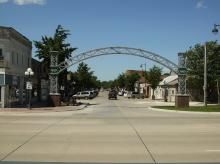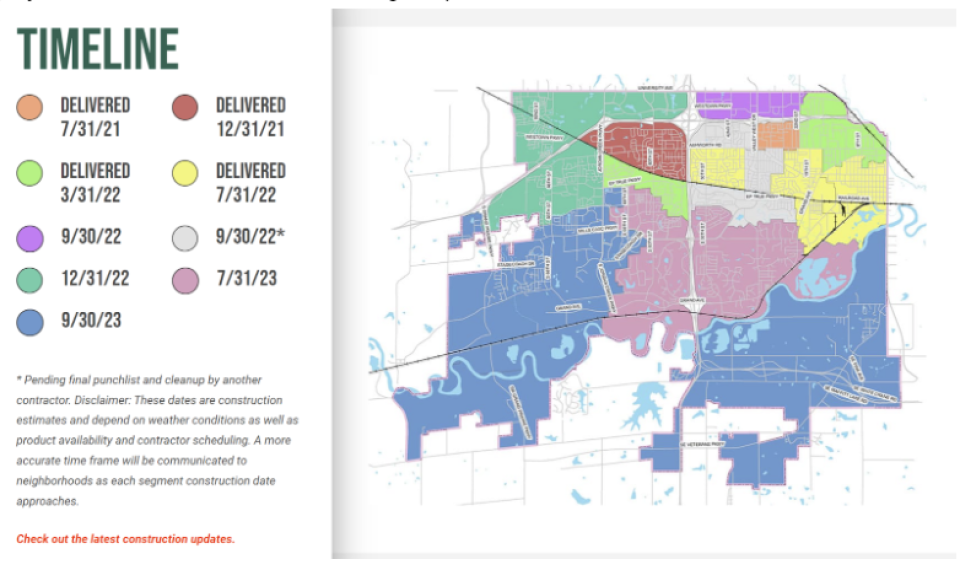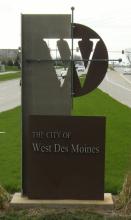
Fast, affordable Internet access for all.

West Des Moines, Iowa is making steady progress on a $60 million open access fiber-optic conduit system to expedite the delivery of affordable fiber citywide. And they’re doing it with the help of Google Fiber, which has slowly started to reverse course after the company’s 2016 decision to lay off hundreds of staff and freeze most meaningful expansion.
West Des Moines is a suburb of Des Moines with a population of 67,000 residents. Like so many U.S. communities, locals have long complained of high broadband prices, spotty coverage, and terrible customer service by the area’s entrenched local monopolies. Iowa studies routinely identify substandard broadband access as a top regional complaint.
So, as in many communities across the U.S., West Des Moines leaders decided to do something about it, in the form of a new public-private partnership with Google. The $60 million bond-funded project will result in citywide fiber conduit, which will be made available to any Internet service provider (ISP) interested in serving the city in a bid to dramatically boost local broadband competition.
The city is hopeful that ISP access costs ultimately cover the full build cost of the fledgling network. Google Fiber has already committed to pay the city an estimated $16 million to access the city’s new open access conduit system. Other ISPs that have never served the city before, including locally owned and operated Mi-Fiber, have also stated they’ll pay to access the conduit.
Generate City Revenue and Meet Growing Need of Residents
West Des Moines first announced the project in the summer of 2020, noting that it would lay more than a 1,000 miles of conduit alongside city streets, after which Google would come in and deploy its own fiber network to every last city address. In preparation, Google Fiber opened a brick and mortar retail location in West Des Moines in 2021.

The costly and time-consuming construction effort continues to make inroads, with roughly a quarter of the city’s residents having access to broadband provided via the city conduit. Completion of the full conduit system is expected before the end of 2023.
The city’s "Plant the Speed" website provides a map of completed and scheduled work, a more detailed explanation of each individual construction phase, and a FAQ explaining the city’s choice to embrace conduit over deploying its own fiber network.
“One key difference with the conduit network project is that this infrastructure will actually generate revenue (unlike roads and bridges) from Internet providers who use the conduit network,” the city FAQ notes. “The City’s excellent AAA credit rating allows us to borrow money at extremely low interest rates, and that makes it possible for us to undertake a variety of projects that make West Des Moines a great place to live and work.”
The project is part of a broader future-proofing effort by West Des Moines city leaders called the 2036 plan (pdf). First proposed in 2016, the plan calls for numerous local technology improvements, including 80% of the population having access to gig speed broadband by 2026, a milestone the project should accomplish with time to spare.
Not unlike numerous other communities, the plan makes it clear that city leaders were inspired by efforts in Chattanooga to treat broadband as an essential utility. As pandemic home education and telecommuting issues highlighted affordable broadband’s importance, city leaders doubled down on their vision.
ILSR’s Christopher Mitchell sat down with Jamie Letzring, Deputy City Manager for West Des Moines, to discuss the project’s ambitions in Episode 426 of our Community Broadband Bits Podcast.
“We don't have the type of Internet coverage that you may suspect from a community our size, and we really saw a large increase in population during the early 2000s when a lot of our industry was taking off and a lot of people were moving to West Des Moines,” Letzring told ILSR. “It just seemed like existing Internet providers couldn't either keep up, or didn't manage to be able to meet the growing need of our residents.”
Iowa Center Stage On Google Fiber’s Return To Active Expansion
Google Fiber’s interest in Iowa fiber expansion is a notable recent reversal for the company, which effectively suspended most network expansion in 2017 after executives at Google Fiber’s parent company, Alphabet, became disenfranchised with the time-consuming cost of trying to disrupt America’s monopoly-heavy residential broadband market.
At the time, Google Fiber parted ways with its CEO and laid off hundreds of employees. Customers in cities like Kansas City that had been waiting years for promised service suddenly found their installations unceremoniously canceled. Elsewhere, cities like Louisville were left high and dry after years of promises of better, cheaper access.
But recently, Google Fiber has shown renewed signs of life, announcing plans to ultimately deliver speeds as high as 100 gigabit per second (Gbps) service, and modest expansions across Arizona, Utah, and Iowa. Google Fiber also started construction on its own network in neighboring Des Moines last September.
“This conduit network construction model allows each of us to do what we do best,” Andy Simpson, general manager of Google Fiber’s Central Region told Bloomberg News. “We believe that communities should have a choice about how they get broadband — whether it’s provided by private sector companies, by public sector utilities, or through public-private collaborations.”
Google Fiber currently provides gigabit-capable fiber optic broadband to parts of 22 cities across 15 states. The company has generally avoided the Northeast United States, where fiber competition is slightly more robust.
Regional Monopolies Do Their Very Best To Stall Progress
As with most local community-driven efforts to disrupt profitable broadband monopolies and correct market dysfunction, West Des Moines’ network plans have been a popular target for competition-averse national providers. Regional cable giant Mediacom sued the city in 2020, claiming that the city had improperly used the state’s Urban Renewal Law to issue bonds for the project.

Mediacom and West Des Moines settled the lawsuit for $600,000 early last year, with the city admitting no wrongdoing. While the lawsuit wound up delaying construction on the citywide conduit system for more than a year, Mediacom ultimately agreed to use the city’s conduit to expand its own broadband services to the city.
“Our goal all along has been to encourage and embrace competition in the marketplace, and Mediacom’s interest in using portions of the conduit network to expand its service in West Des Moines furthers that goal,” West Des Moines leaders said.
Whether cooperatives, utilities, municipalities, or public-private partnerships, Mediacom has a history of spreading false information to derail community broadband projects. That includes in nearby Emmetsburg, Iowa, where the company successfully used tired tropes and falsehoods to scare local voters away from building a community broadband network in 2013.
Should the West Des Moines conduit project meet its deadline of completion before the end of this year, Mediacom will soon face something company executives have long strived to avoid: meaningful broadband competition.
Header image of West Des Moines historic district courtesy of Wikimedia Commons, Attribution-ShareAlike 3.0 Unported (CC BY-SA 3.0)
Inline map of conduit construction map courtesy of the city of West Des Moines
Inline image of West Des Moines sign courtesy of Wikimedia Commons, Attribution-ShareAlike 3.0 Unported (CC BY-SA 3.0)
